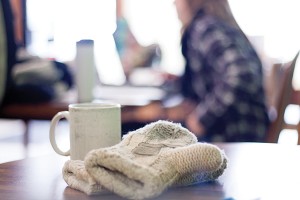The Marquette area has seen an increase in homeless populations correlating to a general rise in homelessness across the state of Michigan.
In Michigan, about 117 people per 100,000 are homeless, meaning the Upper Peninsula could have upwards of 300 homeless people scattered across its frigid geography.
According to the United States Interagency Council on Homelessness, less than 1,000 people in the state experience chronic homelessness.
Patrol Captain Blake Rieboldt said he has noticed an increase of homeless individuals coming to Marquette, but is careful not to attribute it to any particular trend.
“I don’t know if I can correlate it to any economic situation or the situation the United States is in,” Rieboldt said. “When there are more services available, more people utilize those services. We didn’t have those opportunities in the past.”
Rieboldt could not give specific, quantified rates, but contended that services to homeless populations make those populations more visible.
“I think in the past we’ve seen a small population of individuals who were around here when weather was hospitable,” Rieboldt said, adding that homeless individuals were more likely to leave the area in the winter when charity services were less available. “With increased facilities, more people are staying in the winter. I don’t think there’s been a dramatic increase. It’s not like last year we had two [homeless] contacts and now we have 700.”
Rieboldt contended that it could be more are clustering in Marquette with increased charity services.
Among those services is the Room at the Inn across from the Ramada Inn on Washington Ave. Room at the Inn provides shelter services for those who need it so that those individuals may focus on transitioning into new life phases rather than focus on specific daily needs.
Lindsay Jiracek has worked with the Room at the Inn for eight years. She is a coordinator through First Presbyterian Church in Marquette.
“It’s a really beautiful program,” she said. “It’s very grounding and makes you thankful for everything you have in your home. It’s really busting down stereotypes in Marquette. We’ve had college professors stay here. We had a woman with two master’s degrees-it’s really opened up the perception of what homelessness is.”
Ann Crandell-Williams is an assistant professor and field placement coordinator in the NMU social work department. She does not specialize in work with homeless populations, but as a social work educator, helps students to develop tools and skills to work with homeless and transient populations after graduation.
“In terms of practitioners out in the field, the number one skill they need is connecting people to resources,” Crandell-Williams said, adding that many people in transition are unaware of low income housing and other opportunities available to them.
She stressed the importance of people who work with homeless populations to understand the processes to get people off the streets to safety.
She emphasized the importance of breaking stereotypes.
“I think we picture the homeless individuals as male, old, looks like a bum. That’s a stereotype,” Crandell-Williams said.
She added that there are college students and college-educated people who are homeless. She said when she sends students to work at the Room at the Inn, they are blown away by the demographics represented there.
Part of the stereotypes surrounding homelessness, she said, are associations with mental illness and substance abuse.
“Research and statistics show certain disorders and conditions are more prevalent within impoverished communities,” Crandell-Williams said, noting that substance abuse is as well, though there aren’t strong correlations between being impoverished and being prone to substance abuse. She added that people are not used to the idea that homeless people are employed.
“People almost always tend to assume a homeless person is lazy and unwilling to work,” Crandell-Williams said. “A large percentage are employed.”
Rieboldt has been with the Marquette police force for almost two decades and has noticed increased reporting of trespassing and substance abuse related to homeless individuals in that period. He added that, given Marquette’s small population, there is a group of individuals the police force are familiar with.
Health Promotions Specialist at the University Center Lenny Shible said in his time at NMU he has met one homeless student, but that efforts were coordinated shortly thereafter to help the student find stability. He stresses that does not mean homelessness is not an issue for students, but that if so, it is not visible.




























